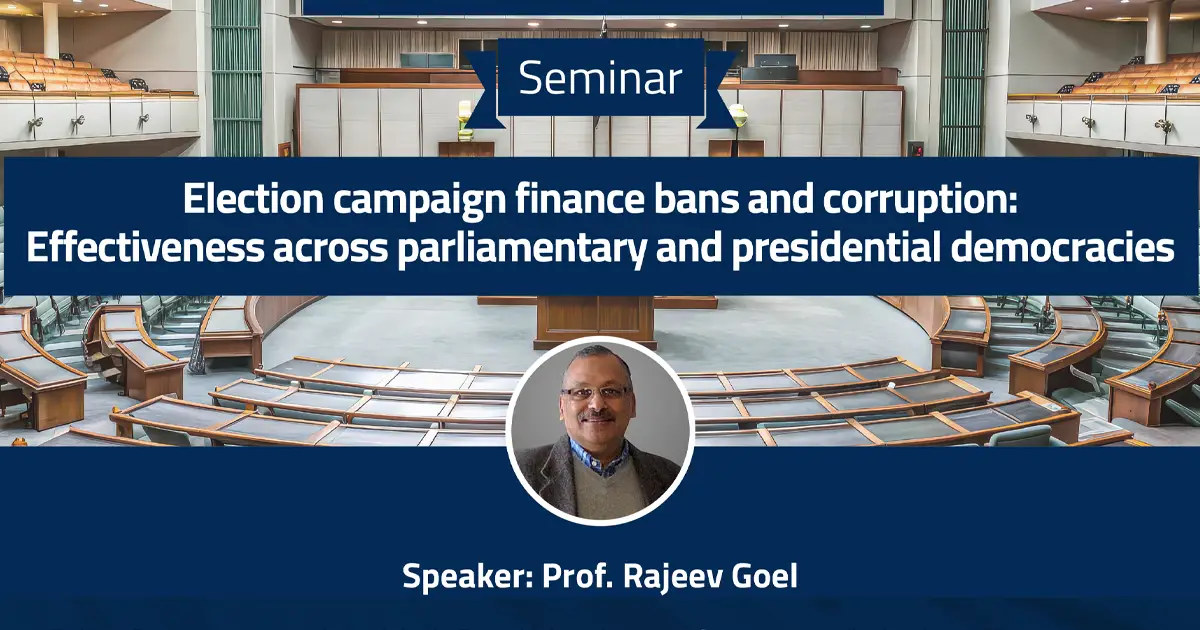
Election Campaign Finance Bans and Corruption: Effectiveness across parliamentary and presidential democracies
Using data on a large sample of nations, this research studies the effects of campaign finance reforms on corruption, including bans on contributions by trade unions and corporations. The focus on campaign finance bans in presidential versus parliamentary democracies is a unique aspect. We find that, while bans on campaign donations to political parties and candidates by trade unions are effective in reducing corruption, their efficacy varies across presidential and parliamentary democracies. Specifically, bans on campaign contributions to political candidates and parties reduce corruption in presidential democracies, but they are ineffective in parliamentary democracies. Campaign contribution bans on corporations are largely ineffective. When a broader measure of institutional quality/enforcement is considered, its effectiveness overpowers the effects of individual bans. Some of these findings are unique and suggest that policymakers considering combating corruption should take into account the form of democracy, the type of campaign finance ban, and the nation’s overall institutional quality.
Speaker
Prof. Rajeev GoelRajeev Goel is an economist at Illinois State University and a fellow at the Kiel Institute. He collaborates closely with the research group “Innovation and International Competition” on various topics. Their common research interests include innovation, globalization, and international economics.
Ultimo aggiornamento: 5 Settembre 2024
